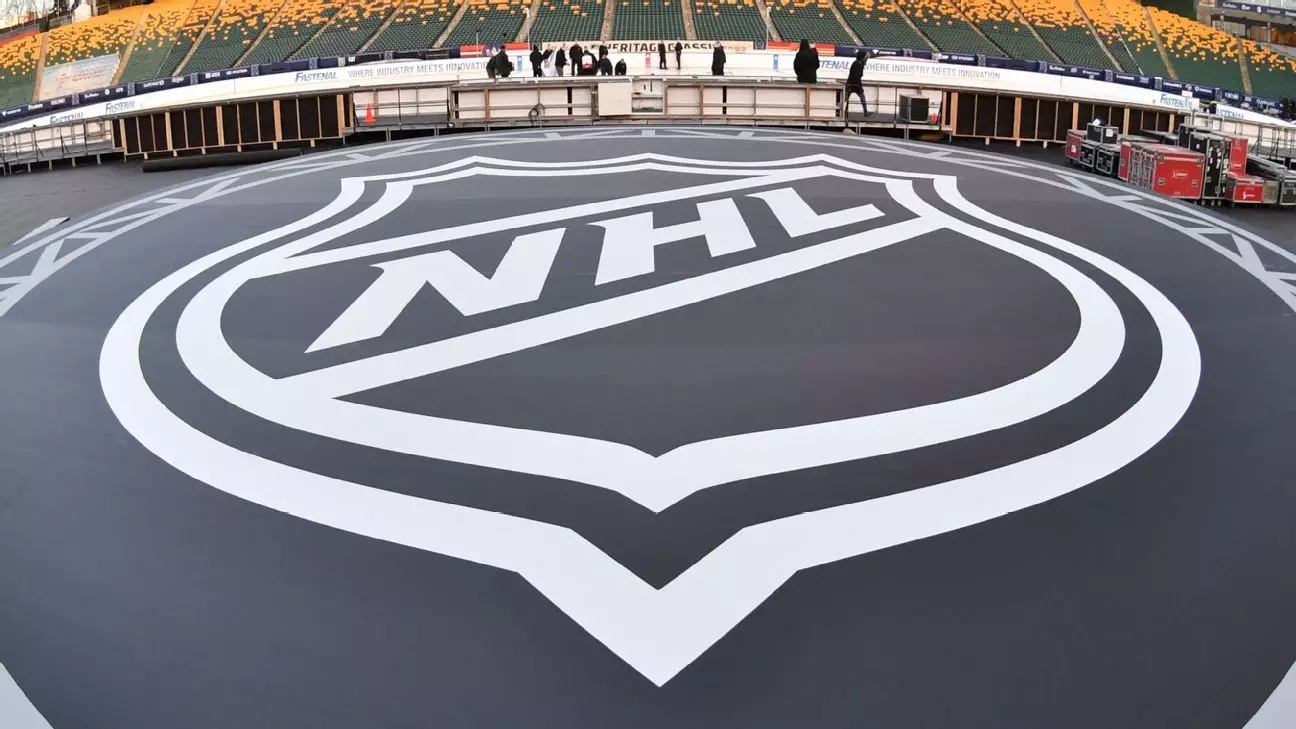In a significant development for the National Hockey League (NHL) community, an agreement has been established between the NHL Players Association (NHLPA) and Boston College. Announced on Wednesday, this partnership aims to facilitate a smoother transition for players—both current and former—who wish to pursue their college degrees at Boston College’s Woods College of Advancing Studies. This initiative is particularly noteworthy given that many NHL players often prioritize their sporting careers over education. With this new arrangement, the barriers traditionally preventing athletes from completing their degrees are expected to diminish substantially.
For many athletes, the career trajectory is often a short and intense sprint, typically concluding by their mid-30s. Acknowledging this reality, the new agreement opens avenues allowing players to earn degrees in a flexible manner. The Woods College specializes in catering to non-traditional learners, making it suitable for those who balance demanding professional lives with academic pursuits. As noted by Marty Walsh, NHLPA’s executive director and a proud Boston College alumnus, education played a critical role in his life, asserting, “It allowed me the opportunity to get a college degree.” His experience embodies the potential of this partnership, with classes being attended by individuals in various stages of life, highlighting the inclusivity of the program.
David Goodman, the dean of the Woods College, has expressed enthusiasm regarding the agreement, suggesting that it represents a natural progression in the long-standing relationship between the NHL and Boston College. By addressing some of the bureaucratic hurdles faced by players, the proposal aims to streamline processes like transferring previously earned academic credits. Current NHL player Josh Jooris, previously a student at Union College, exemplifies how the sports and academic worlds can intersect. By being enrolled at Woods College, he illustrates the growing trend of athletes valuing education alongside their sports careers, encouraging others to follow suit.
Brooks Orpik, a Boston College alum and a two-time Stanley Cup champion, echoed this sentiment after returning to school post-retirement to earn his degree in 2022. Describing his accomplishment as a “feeling of pride,” he underscored the importance of honor and integrity in education, something he promised to his family and mentors. Orpik’s journey illustrates the evolving mindset of athletes who recognize the value of academics even after experiencing the pinnacle of success in their respective sports.
The Woods College provides various study formats—online, on-campus, or hybrid—which align well with the unpredictable schedules of professional athletes. The lack of a cap on enrollment means that the NHLPA anticipates attracting several dozen players, a measure aimed at ensuring access while maintaining quality in education. If demand exceeds expectations, Dean Goodman remains committed to adapting course sections accordingly, further enhancing the program’s viability.
This initiative coincides with similar movements across professional sports. Just as the Major League Baseball Players Association has brokered a comparable agreement with Syracuse University, the NHLPA’s partnership illustrates a growing awareness among athletic organizations regarding the importance of education. Walsh has indicated that empowering players academically is as essential as advocating for their rights on the ice. He emphasized preparation for life beyond sports, stating, “We want to make sure that we’re preparing these players… for success going forward.”
Statistics indicate that over one-third of NHL players have previously participated in collegiate hockey in the U.S. and Canada. However, a significant proportion leaves school without obtaining their degrees. This new alliance with Boston College serves as a crucial step in addressing that gap. Even for players who ascend to remarkable careers in the NHL, retirement can arrive earlier than anticipated, leaving them with several decades that require viable career options.
As Dean Goodman mentioned, the awareness that many players will transition to other professions sooner rather than later makes this educational initiative vital. The approach to revisiting education need not carry a stigma and can indeed be viewed as a bold and necessary step in a player’s life journey. The NHLPA’s push for educational reform symbolizes a shift in the sports landscape—a recognition that well-rounded athletes deserve a robust support system beyond their athletic prowess.
The collaboration between the NHLPA and Boston College not only creates educational opportunities for players but also signals a broader commitment to their long-term success, nurturing the next generation of prepared and informed individuals ready to take on new challenges both on and off the ice.

